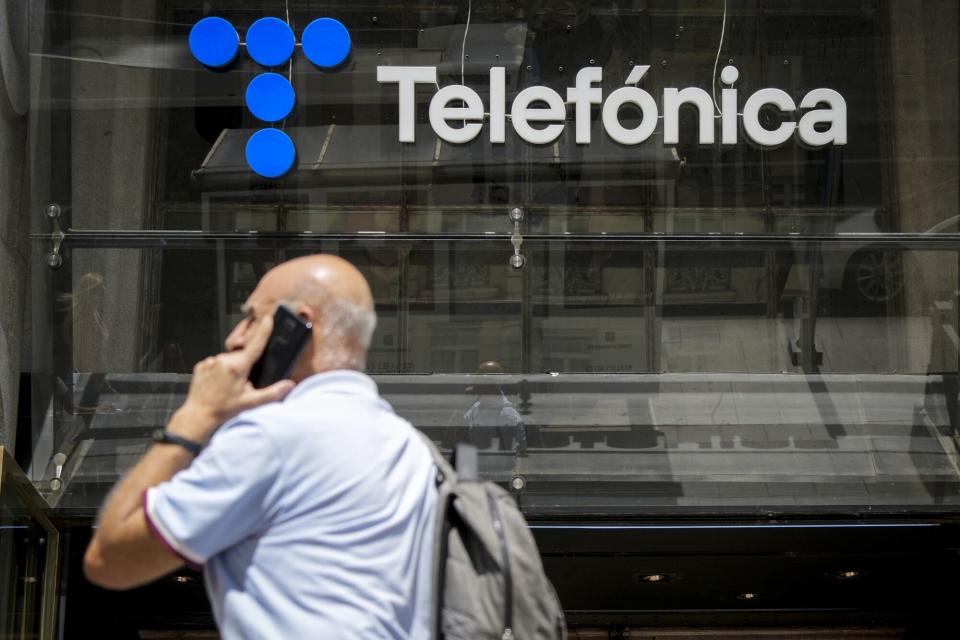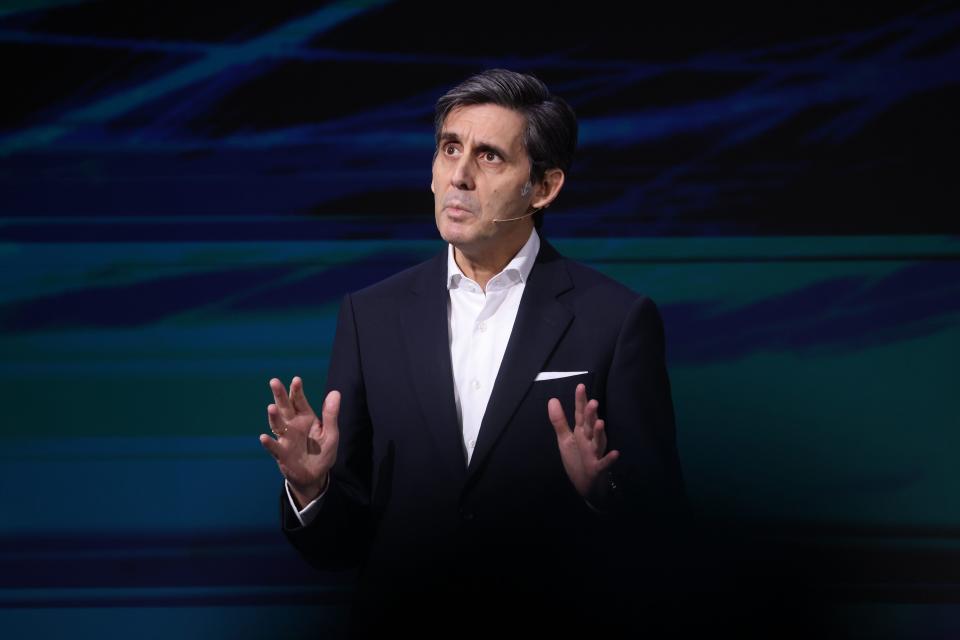Telefonica Boss’s Job Is About to Get Political With State Stake
(Bloomberg) -- Jose Maria Alvarez-Pallete spent much of his nearly eight years as chairman of Telefonica SA trying to move beyond the carrier’s reputation for being cozy with Spanish political interests. Now the government may become his biggest shareholder.
Most Read from Bloomberg
Spain announced a plan on Tuesday to buy as much as 10% of Telefonica — a stake worth some €2 billion ($2.2 billion) — in a move that the government says is about providing shareholder stability.
It will put Prime Minister Pedro Sanchez’s government in a powerful position to influence the former telecom monopoly, which runs sprawling operations in Spain and throughout Latin America.
The move is a sign of how important Telefonica is to the government, which has historically taken a hands-off approach to the private sector. It means Pallete may have to consider the political implications of any decisions to reduce headcount or criticize regulatory issues at its businesses abroad in countries that are some of Spain’s closest allies.
The adjustment could be an awkward one. When Pallete took over as the first company insider to be named chairman, he moved to shut down a number of advisory boards that were staffed largely with former officials and prioritized corporate strategy over politics.
Before Pallete, Telefonica had a tradition of naming political appointees to the post even though the government hasn’t held a stake in the formerly state-controlled firm since the late 1990s.
The deal will be positive for shares in the near term if they are bought on the market, according to Deutsche Bank analysts including Robert Grindle.
“Beyond, the government may prevent take-out and certain types of strategic action,” Grindle said in a note Wednesday.
Telefonica shares have surged more than 10% since the plan was announced. Shares were up 3.6% to €3.69 at 3:07 p.m. in Madrid on Wednesday.
Spain decided to make the move on Telefonica after Saudi Telecom Co., a carrier controlled by the kingdom’s sovereign wealth fund, announced a deal to buy as much as 9.9% of Telefonica. STC has not yet formally requested the necessary Spanish government approval for the acquisition.
State ownership could potentially affect the way certain decisions are made. In Latin America, where regulated companies regularly face tensions with governments, diplomatic ties may take priority over corporate interests.
Telefonica has a history of regulatory issues in Latin American countries. It currently is in court with the Peruvian government over tax payments, it fought with Colombia for years over a jointly owned operator there and it accused a former Argentina government in 2016 of favoring a rival.
“We consider the news to be negative since the government can interfere in strategic decisions that are not aligned with the interests of other shareholders,” Juan Pena, an analyst at GVC Gaesco, said in an email.
The plan was cheered by Sumar, a far-left party in Spain that is junior partner in the governing coalition.
“We can only celebrate this decision,” Culture Minister Ernest Urtasun, who is a member of Sumar, said on La Sexta TV Wednesday. “The state must have the ability to control companies that are strategic for our country and the state must have the capacity to have a strong industrial policy.”
Sumar also has a close relationship with the country’s main unions, who are in negotiations with Telefonica over the carrier’s plan to fire thousands of workers.
The investment will come from Sepi, Spain’s investment vehicle. If it buys a 10% stake, it can get a board seat and would leapfrog existing shareholders Blackrock Inc., Caixabank SA, Banco Bilbao Vizcaya Argentaria SA and Saudi Telecom as the largest investor. Telefonica will be the sixth company in the Ibex-35 benchmark in which Sepi owns a share.
In four of the Ibex companies in which Spain owns stakes — power transmission firm Redeia Corp SA, natural gas transportation operator Enagas SA, airport operator Aena SA and defense technology company Indra Sistemas SA — the government has named chairmen and sought to align corporate interests with government strategy.
It has been far more hands-off with CaixaBank, the largest domestic bank. The lender is the only one of Sepi’s investments that was acquired under Sanchez’s government and came as a result of CaixaBank’s 2021 takeover of state-controlled Bankia.
--With assistance from Clara Hernanz Lizarraga and Jonas Ekblom.
Most Read from Bloomberg Businessweek
One Man’s Longevity Obsession Now Includes Fountain-of-Youth Injections
Michael J. Fox and Sergey Brin Take Their Push for a Parkinson’s Cure to the Next Level
We Are So Not Ready for a Society Where Living to 100 Is Common
©2023 Bloomberg L.P.



